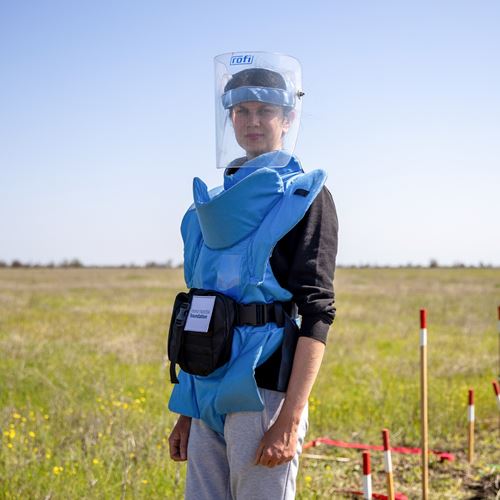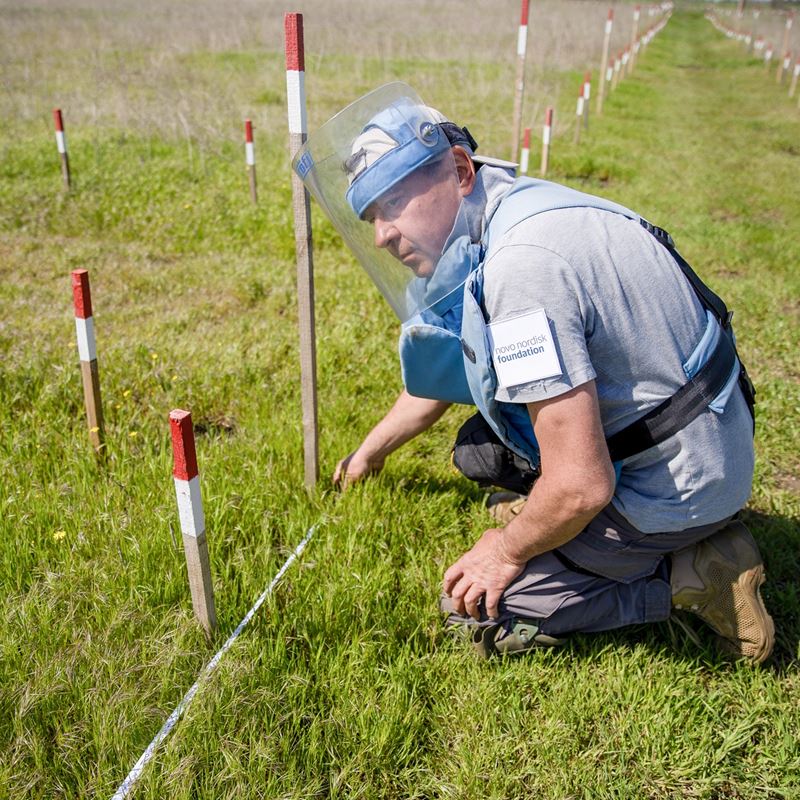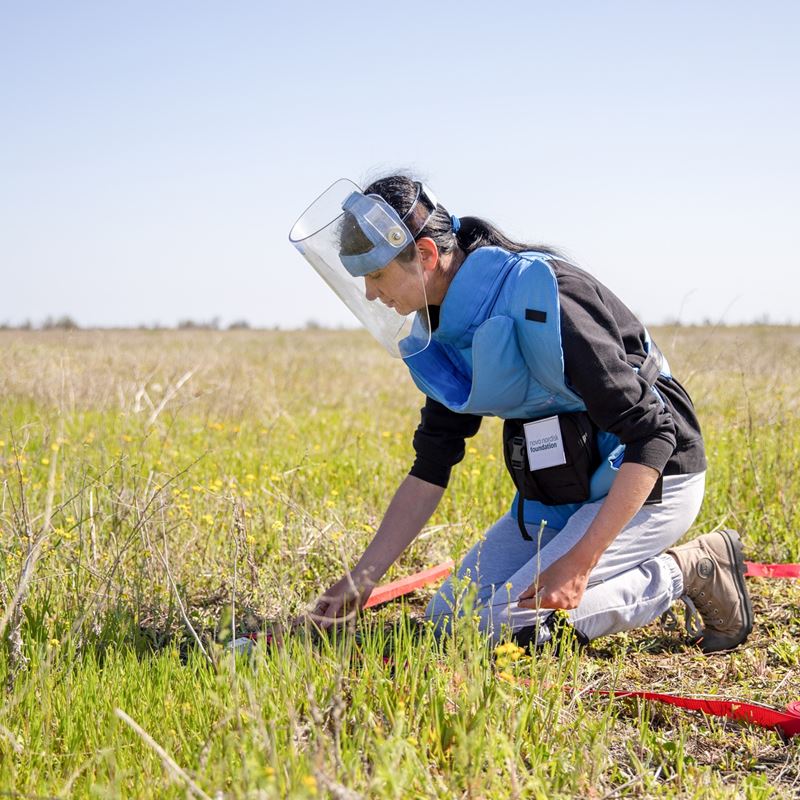
Ukraine: “Every time my detector signals, my heart races” — deminer
Today, Ukraine stands among the most mine-contaminated countries in the world. This immense contamination demands more than just specialised equipment—it requires dedication, discipline, and thousands of courageous individuals trained to uncover deadly remnants with care and precision.

Many of those stepping into humanitarian demining in Ukraine had no prior experience in the field. Yet, they chose to take on this risky, vital task to help make their homeland safe. The recruitment process mirrors that of other professions, though with one key difference: an intensive five-week training course.
During this period, recruits gain theoretical knowledge about various munitions and learn safety protocols. Once this foundation is laid, they move on to practical exercises—scanning land, identifying threats, marking them, and learning how to excavate them safely. Only if you pass the training successfully can you start work on the real site.
From a pawnshop to a demining site
One such recruit is Veronika, a 36-year-old woman who made a bold career change in 2025 to join the Danish Refugee Council’s (DRC) demining team.
"I saw the vacancy and felt it was time to act," Veronika recalls. "I wanted to help make our land safe again."
For ten years, Veronika had worked in a pawnshop in Mykolaiv. Her sudden career shift surprised her family. “But I’m an adult. I can make my own choices,” she says with a laugh. “They sighed and accepted it eventually. Honestly, I was craving something active—I’d had enough of sitting behind a desk.”
Since April 2025, Veronika has been out in the fields, uncovering the wreckage of war. So far, she has only discovered remnants—shell fragments, unexploded debris—but the unpredictability is part of the job.
"Every time my detector signals, my heart races. But the training really prepares you. We follow strict protocols to keep ourselves and our team safe.”
Thanks to the funding from the Novo Nordisk Foundation, her team is currently working in the agrarian fields in the Mykolaiv Oblast—land that was either occupied by the Russian Federation Armed Forces or suffered from massive shelling in 2022-2023. These fields are now laced with mines and explosive ordnance. But once cleared, they will return to life, ready again for sowing crops and grazing livestock.
Despite the danger, Veronika remains steady. "Living in Ukraine means dealing with the aftermath of full-scale war. It’s hard everywhere—physically and mentally. I stayed in Mykolaiv during the worst shelling. That was tough. I believe every job is difficult, but if you enjoy what you do, the challenges become bearable.”
She also finds inspiration in her colleagues, who come from all walks of life.
“We’ve got bartenders, shop assistants, even zootechnicians or businessmen. It's incredible to work with such a diverse team—it makes every day interesting.”
/ Veronika, deminer

Hennadii, a deminer, clears a contaminated land in Mykolaiv Oblast. ©DRC Ukraine, Mykolaiv Oblast, 2025, Olena Vysokolian
Strict procedures to minimise risks
Among Veronika’s colleagues is Hennadii, 57, who fled Kharkiv with his family in 2022. Before the war, he was a successful entrepreneur, running a furniture business with 300 employees. But everything changed when he watched bombs falling on Kharkiv’s outskirts from his apartment window. He knew then that it was time to leave.
He spent a year doing odd jobs—loading cargo, selling motor oil—until he joined the DRC’s demining team in 2023.
“I’ve been here for two years now,” Hennadii says. “At our last site, we found 22 submunitions—small bomblets packed inside larger rockets. They resemble pencil cases with ribbons. At another site, I unearthed an aircraft missile.”
Despite the dangers, Hennadii stresses that the system is designed to minimise risk. “We work methodically. It’s not reckless. Everything is about discipline, teamwork, and safety.”
Confidence and practice are the key
“I don’t want to leave my motherland,” Veronika says. “This is my home. My friends are here. I want to do something useful.”
For those considering a career in demining, she offers some heartfelt advice: “Don’t be afraid. Pay attention during training. Absorb everything your instructors say—it might save your life. It’s tough at first, but it gets easier with practice.”
As Ukraine works to heal and rebuild, people like Veronika and Hennadii are quietly clearing the land, with a dream that soon farmers will start working here safely, bringing back the sprouts of economic recovery to the communities.

Veronika must thoroughly check every centimetre of soil before it can be considered safe to use. ©DRC Ukraine, Mykolaiv Oblast, 2025, Olena Vysokolian
